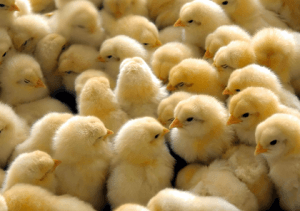Hatchery Bill to be passed by next Parliament – Dr. Akabua
 The Hatchery Bill would be passed into law by the eighth Parliament to effectively regulate and check operational standards in the poultry industry.
The Hatchery Bill would be passed into law by the eighth Parliament to effectively regulate and check operational standards in the poultry industry.
Dr Geoffrey Akabua, Deputy Director of Veterinary Services Department (VSD) in-charge of Veterinary Public Health and Food Safety, announced this at a Farmer Field School (FFS) at Dormaa-Ahenkro in the Dormaa Central Municipality of the Bono Region.
The programme, jointly organised by the Food and Agriculture Organisation (FAO), in collaboration with the Dormaa Poultry Farmers Association, was attended by more than 50 participants, including poultry farmers and other operators in the poultry value chain.
Dr Akabua explained the Bill suffered some challenges and was withdrawn to be fine-tuned for its passage into law.
“It is not only a hatchery law but a veterinary law which entails a lot,” he added.
Dr Akabua entreated poultry farmers to take into serious consideration the issue of maternal immunity and vaccination protocols before deciding on the vaccination type to administer between two and three weeks.
He thanked the FAO for embarking on the exercise, saying “report reaching the VSD indicated the farmers at the FFS were showing seriousness and are now seeing the importance of the exercise.”
“They have come to appreciate and know the difference in overly indiscriminate antibiotic use. They have realised the difference is negligible and can even do without them,” Dr Akabua added.
Dr. Benjamin Adjei, Assistant FAO Representative, Ghana, urged the farmer-students to apply the concept to improve the performance of their businesses.
The FAO Representative called for the strengthening of the farmers’ association and leaders to uphold the principle of transparency in their tasks to overcome challenges.
Dr Yaw Gyekye, Ahafo Regional Veterinary Officer, said the aim of the FFS approach is to help poultry farmers to reduce excessive use of Antimicrobial Resistance (AMR) and scale up poultry production.
He encouraged them not to despair when they experience low production levels, stressing “that is the time you need to evaluate your Agro-Ecological System Analysis, as lots of factors influence egg production and growth.”
Dr Gyekye appealed to the farmers to invite veterinary officers to determine course of death of birds and disease affecting them rather than blaming it on AMR and entreated them to prioritise and promote biosecurity as a foundation to reduce or eliminate it.
He expressed optimism that attitude and behaviour change would materialize gradually with the education, knowledge, expertise, information and enlightenment they had received from the resource persons.
Dr Gyekye advised the farmers and agents who imported day old chicks to demand health certificates from source indicating which injection strain has been given to the day old chicks.
Dr. Eric Koka, Social Scientist, FAO Project, urged stakeholders including feed millers, egg sellers and poultry drug sellers to be actively involved by playing their roles effectively to build and grow sustainable jobs in the poultry sector.
Mr. Dei Kusi, the Chairman, Dormaa Poultry Farmers Association, appealed to the FAO to support the Association to get equipment for the Veterinary Laboratory at Dormaa-Ahenkro for diagnosis and treatment of diseases of birds.
Participants shared and exchanged ideas after observing chicken pens run on FFS and farm practice of the host/model farm for the FFS project.
Source: GNA
